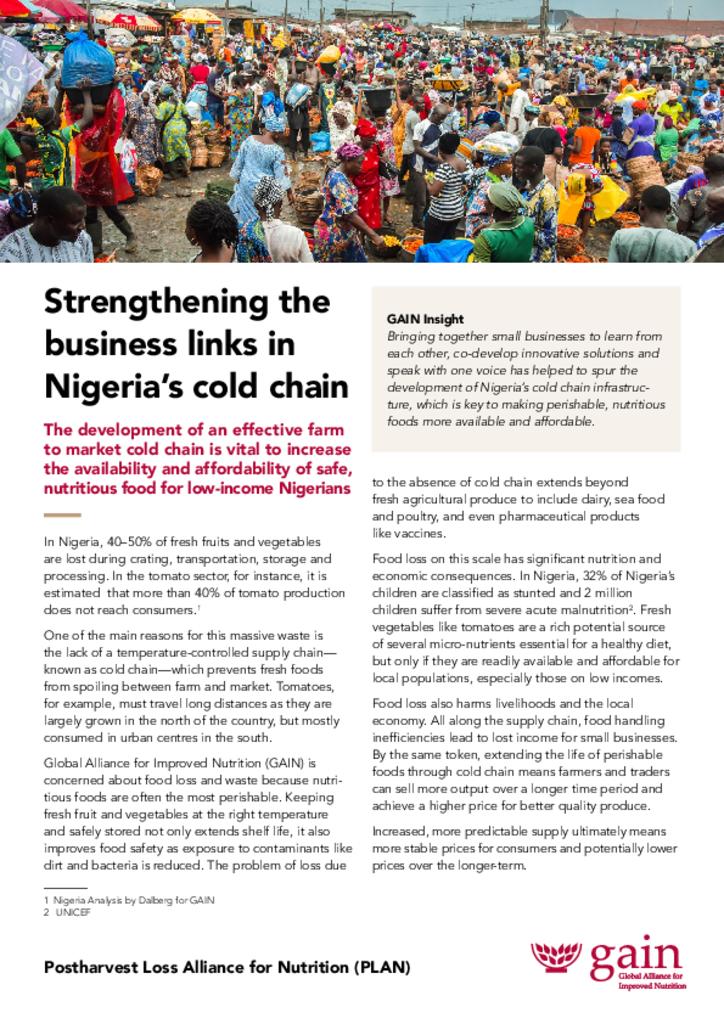In Nigeria, 40–50% of fresh fruits and vegetables are lost during crating, transportation, storage and processing. In the tomato sector, for instance, it is estimated that more than 40% of tomato production does not reach consumers.
One of the main reasons for this massive waste is the lack of a temperature-controlled supply chain— known as cold chain which prevents fresh foods from spoiling between farm and market. Tomatoes, for example, must travel long distances as they are largely grown in the north of the country, but mostly consumed in urban centres in the south.
The Global Alliance for Improved Nutrition (GAIN) is concerned about food loss and waste because nutritious foods are often the most perishable. Keeping fresh fruit and vegetables at the right temperature and safely stored not only extends shelf life, it also improves food safety as exposure to contaminants like dirt and bacteria is reduced.
